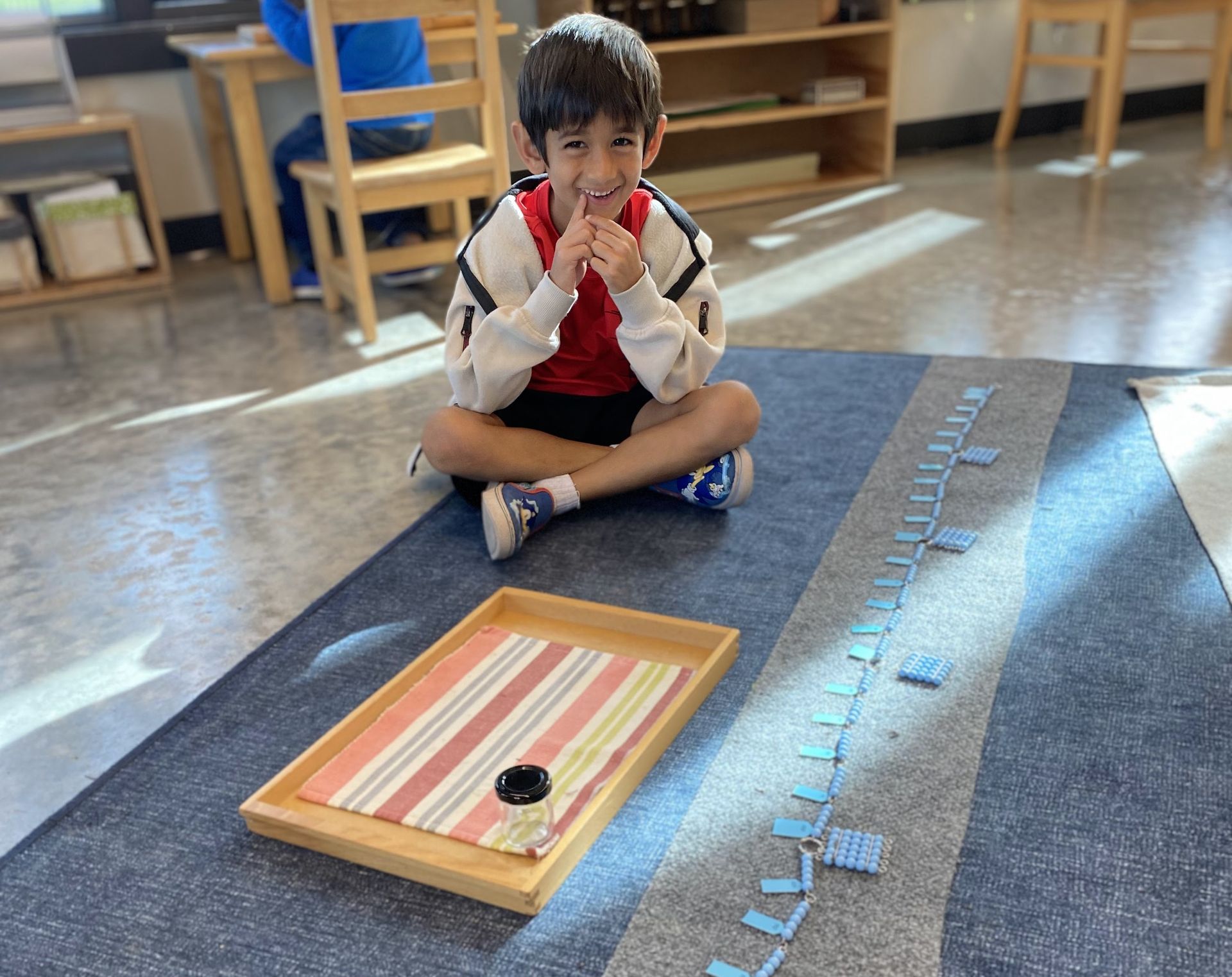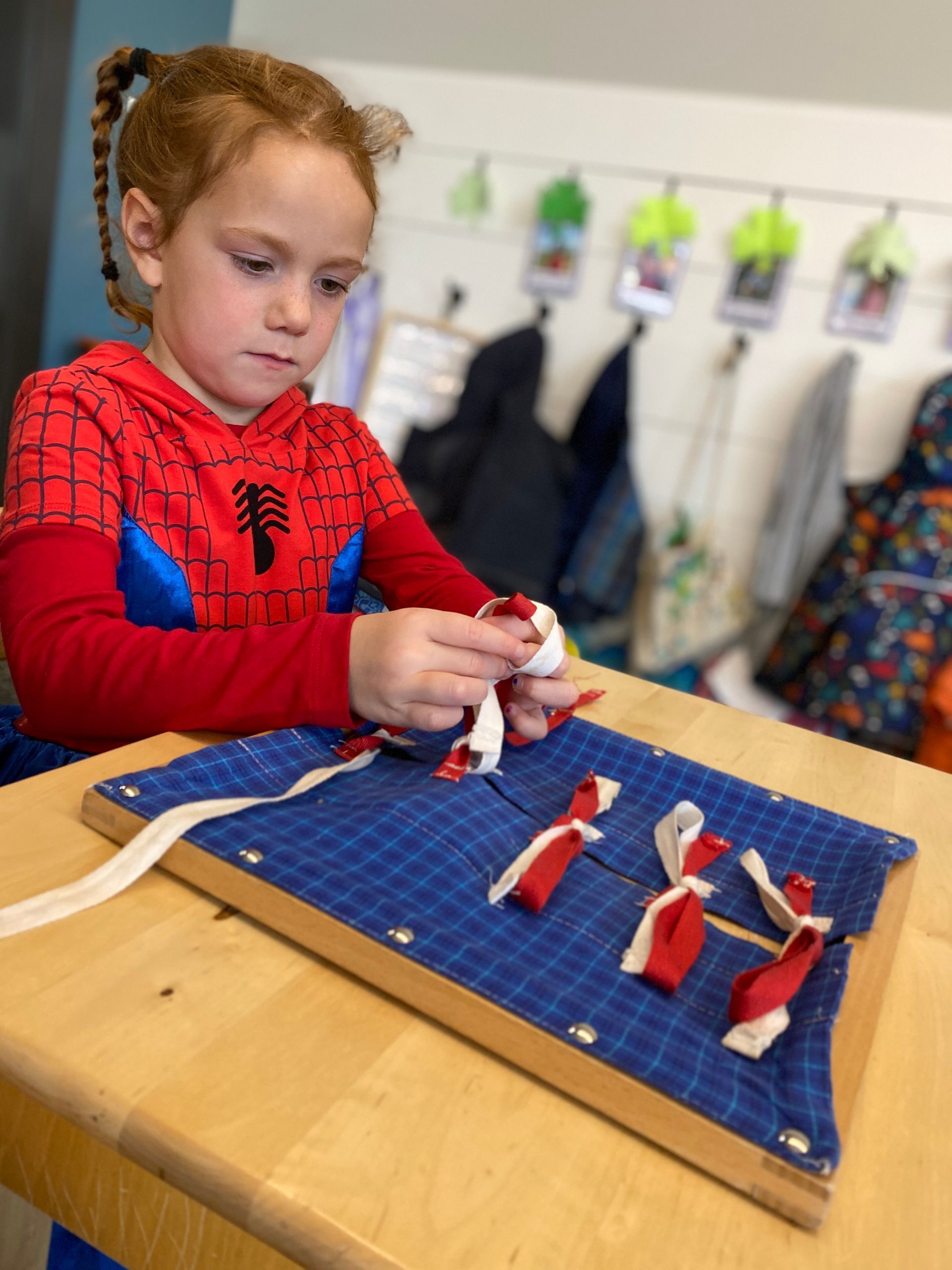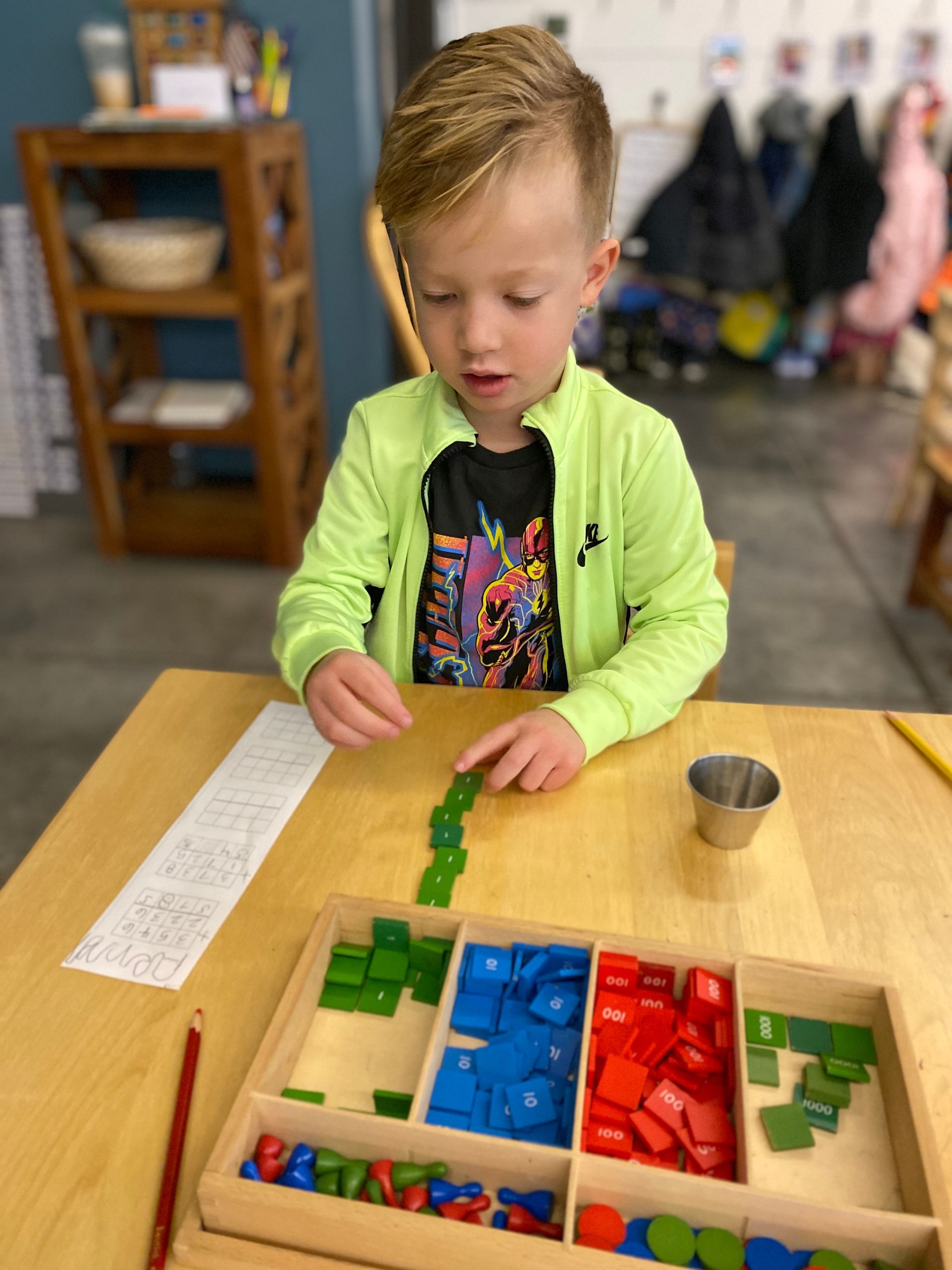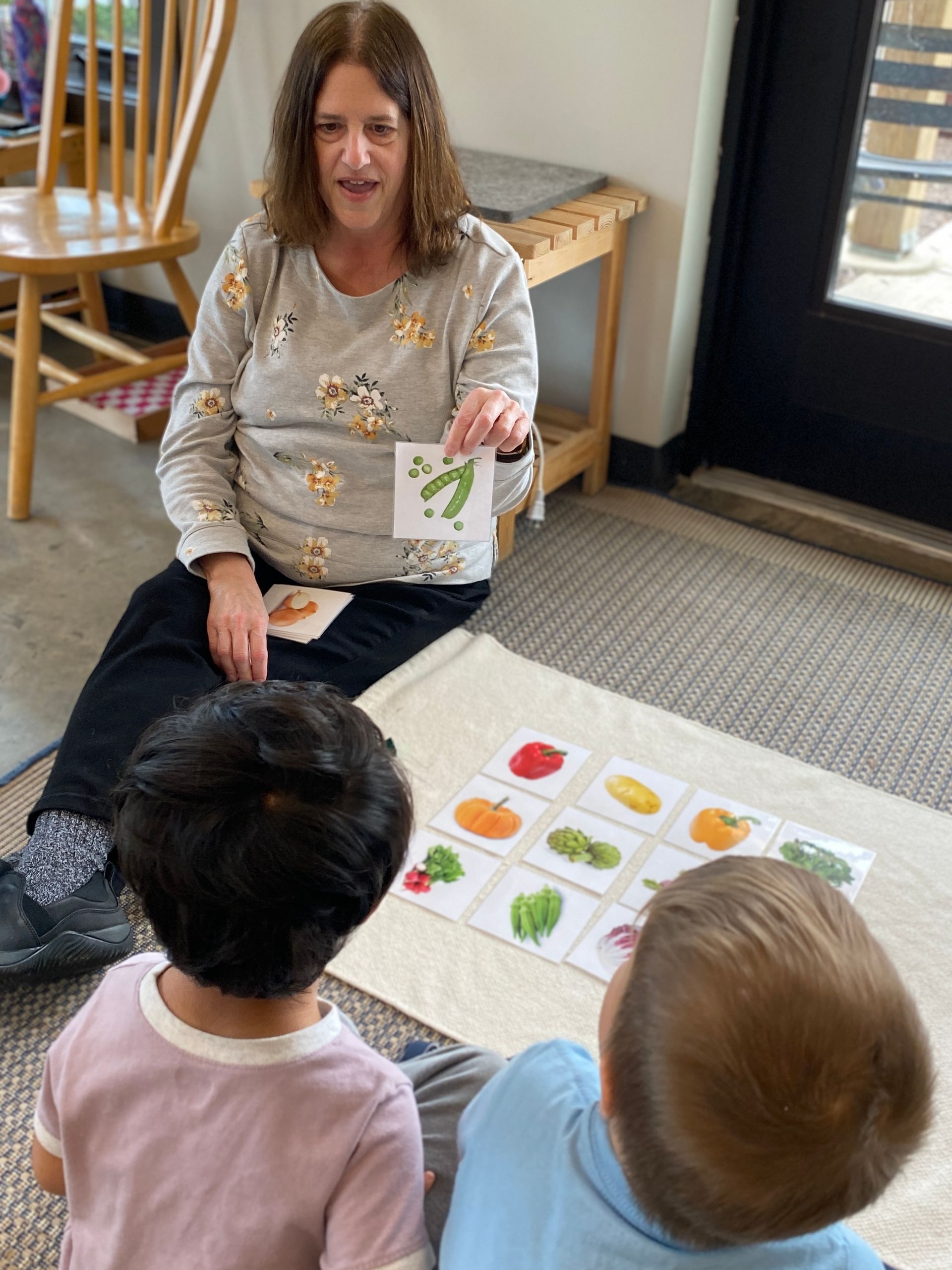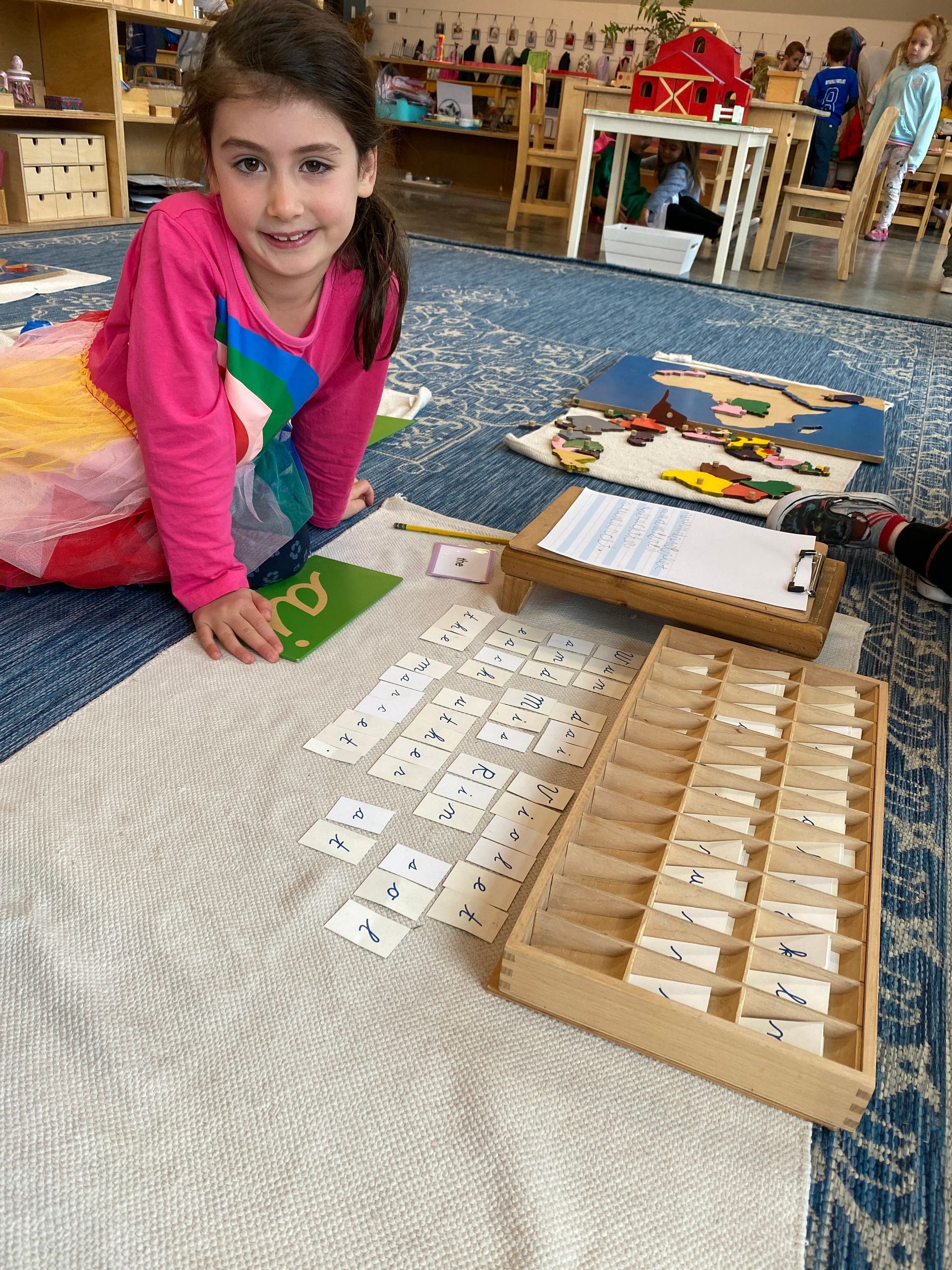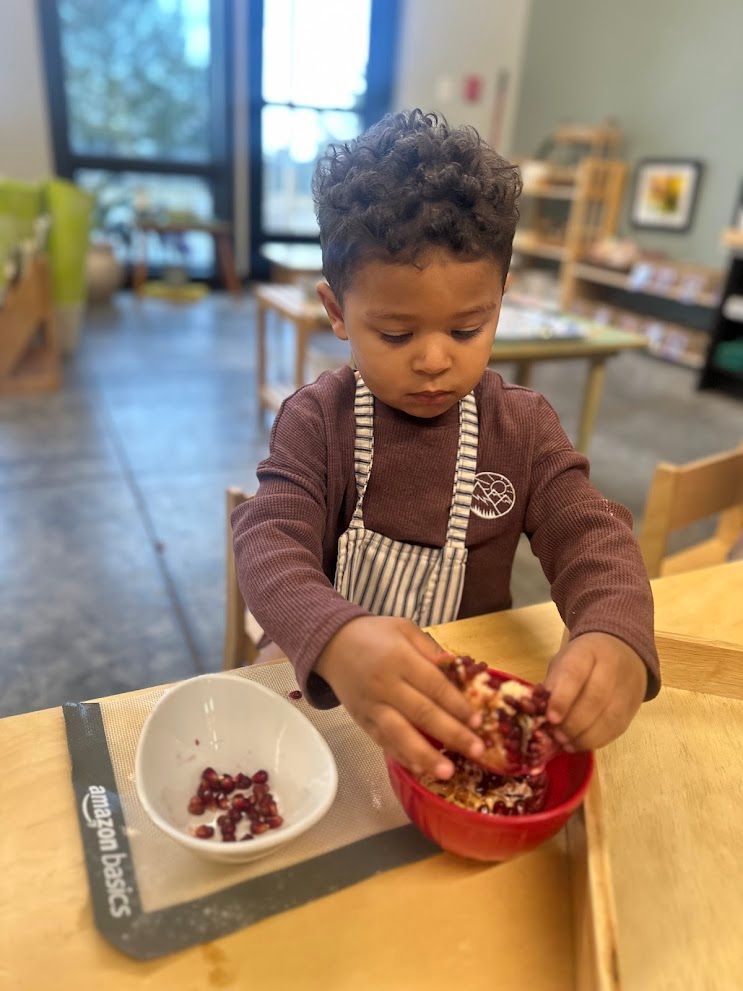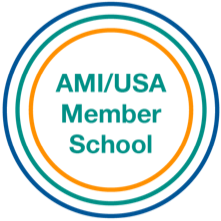“Teachers should cultivate a staunch belief in their mission. Only then will it be possible to create a new world through education. However, if this highest of aims is to be attained, also educational methods must radically change to become an active aid to the psychic development of the child, in an environment prepared following dictates culled from exhaustive study and diligent research.”
MARIA MONTESSORI
Did you know that Montessori doesn’t always mean… Montessori?
The name “Montessori” is not trademarked or patented, meaning that any school, daycare, or childcare service provider can use it to title and market their programs. This does not always guarantee authenticity and quality. Authentic Montessori follows the pedagogy created by Dr. Maria Montessori after her life-long research on the development of children through to adulthood. In a true Montessori program, there are certain expectations for the environment, trained guides, and the guidelines set forth by the thorough research of Dr. Maria Montessori.
Therefore, it is important to make sure you connect with an accredited Montessori school when you are looking for the right program for your child.
What Accreditations Should I Look For?
In the United States, there are two well-known accreditations that you can look for. AMS (American Montessori Society) and AMI (Association Montessori Internationale). Both are respected credentials for Montessori Schools to hold and guarantee fidelity to the Montessori method.
Maria Montessori and her son Mario set up AMI in 1929. AMI is headquartered in Amsterdam. AMI aims to maintain the purity of the original Montessori methodology. In an AMI recognized (certified) school, all guides must be AMI trained and the classroom environments must be up to the AMI standards.
AMS is the brainchild of AMI trained teacher Nancy McCormick Rambusch. She aimed to have the Montessori methodology to be adapted more towards American Culture. In an AMS accredited school, guides can be AMS trained or AMI trained. Often, you will find a mix.
While they may offer small differences, at the core they both AMI and AMS aim to maintain the integrity of the Montessori philosophy. By choosing a school with either of these accreditations, you ensure that your child will gain a true experience of Montessori education. It should be easy to determine if a school holds an AMS or AMI accreditation. Explore on their website and search for the accreditation seal, or contact the school and ask them about their accreditation.
Why Should I Look For An Accredited Montessori School?
- Dedication to authentic Montessori standards: When you go with an accredited school, you know that there are a set of standards that schools needs to maintain. Accredited schools will use authentic Montessori methods and have thoroughly trained guides.
- Quality guides: The prepared adult is essential to an authentic Montessori classroom. An accredited school will only employ guides who have had the proper training to lead a Montessori Classroom.
- You know what you’re getting: When you decide to go with an accredited school, you can rest easy knowing exactly what your child will be learning in the classroom. They will be in the hands of trained guides, and the environment will be properly set up to engage children as Dr. Maria Montessori intended. It’s what you signed up for when you chose Montessori!

